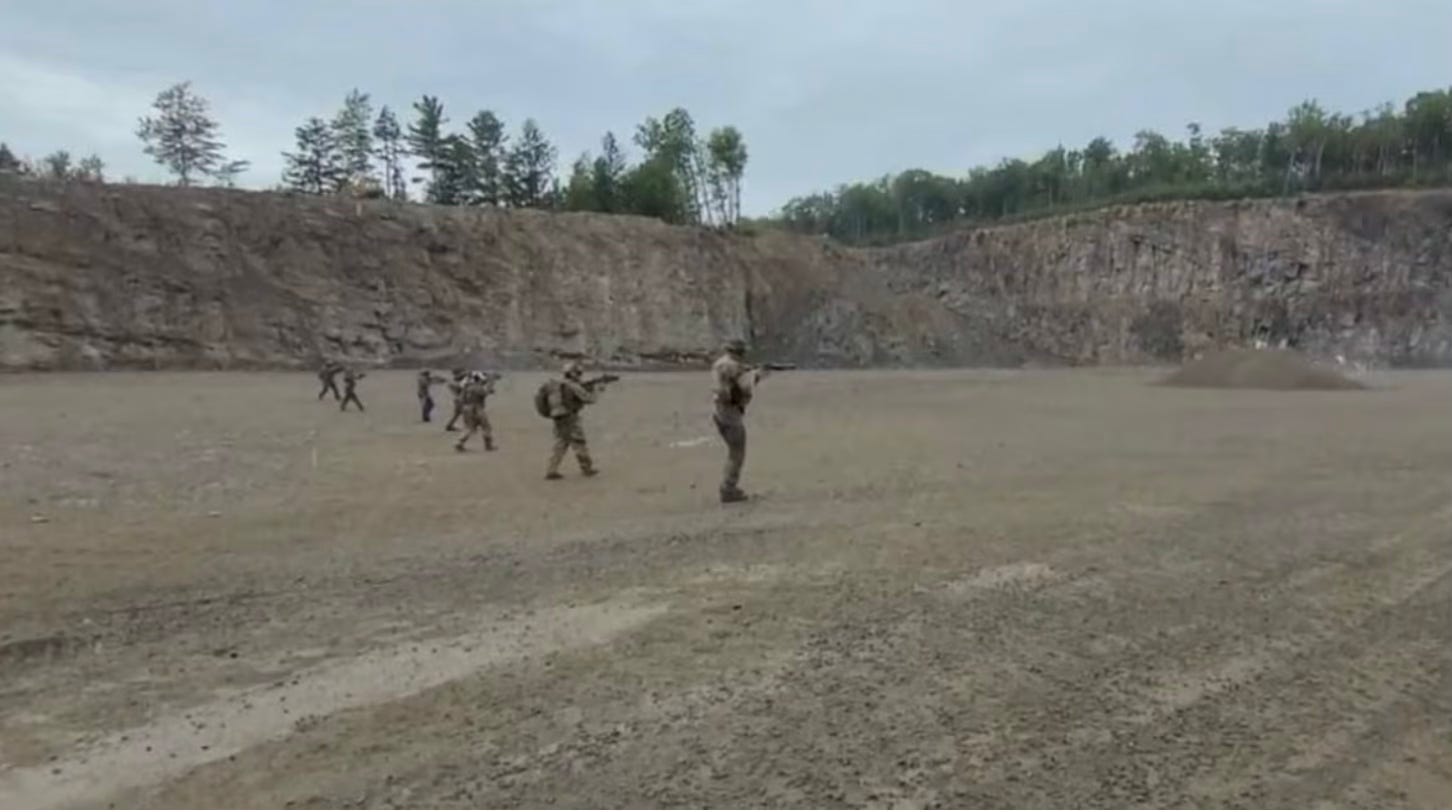Canadian Military Members Arrested on Anti-Government Terrorism Charges
Serving military members arrested for terrorist activity facilitation (ideologically-motivated)
Yesterday, the RCMP announced that it had charged four individuals with offences relating to forcibly seizing land as part of an anti-government terrorist plot. The land the group was interested in wasn’t a government facility; instead, it was land that they could use to build a “new society”. Three individuals were charged with terrorism offences, and a host of weapons charges have also been laid in this case. Two of the men charged are active members of the military, while another one is a retired military member, and the fourth is a former civilian instructor with the Royal Canadian Air Cadets. They were also using Instagram to recruit new members. The group was active as far back as 2021, while the RCMP investigation began in March 2023. In January 2024, the RCMP conducted a raid and seized the group’s weapons, explosive devices, and other material. Not all the people involved in the group have been arrested or charged.
As I described it to the Guardian, this case is both unprecedented and unsurprising.
A few things stood out to me about this case. The first, of course, is that some of these men are serving military members. While military members are no strangers to extremism, and there have been a number of arrests in other countries of retired and active duty military, this is the first time in Canada that we have seen terrorism charges against serving military members. Patrik Mathews, a former reservist and neo-nazi and accelerationist, fled Canada and was ultimately charged (and pled guilty) to offences in the United States. (A few other former military members involved in extremism include Corey Hurren and Steven Chand.)
The second thing that stood out to me about this case was the sheer number of weapons, explosive devices, and rounds of ammunition that were seized in the case. We’re talking 11,000 rounds of ammunition, 16 explosive devices, 83 firearms, 130 magazines, night vision goggles, and other military equipment. This is by far the largest cache of weapons and devices ever seized as part of a terrorism incident in Canada. It’s probably in the top 2% of terrorist-related seizures in Europe and even the US.1
Finally, this case is anomalous from other cases in Canada because it involves a group. The vast majority of our terrorism cases have involved lone actors (or dyads). Lone actors tend to be harder to detect (they tend to let their intentions out far less than groups), and there are fewer leads for investigators to pick up.
These charges are part of the ongoing trend of rising ideologically-motivated violent extremism in Canada. Over the last 18 years, 77% of terrorist attacks have been perpetrated by anti-government, anti-authority, racist, anti-Muslim extremists. (I removed the paywall from these articles because of the public interest imperative for Canadians to understand more about this phenomenon.)
Two cases that illustrate this, specifically in the context of anti-authority extremism, are the Justin Bourque shooting in New Brunswick in 2014 and the 2023 Saanich Bank robbery.
Rising Threat: The Surge of Ideologically-Driven Terrorism in Canada
Hello Insight Monitor subscribers! Welcome to another newsletter dedicated to bringing evidence to the discussion of terrorism. Today, we’re focusing on my home country, Canada. We’re looking at the data we’ve compiled on terrorist attacks. This yields some surprising trends that will almost certainly stimulate debate on what constitutes terrorism and where the biggest threat comes from. Have a read, and let us know what you think!
Just as troubling, however, is that only about 20% of arrests have been for ideologically-motivated violent extremism. Instead, arrests (a common method of disrupting terrorist activity) have focused on religiously-motivated (i.e. Al Qaeda, ISIL) terrorists. There’s a disparity here between what the RCMP has been able to disrupt and what the threat in Canada is.
Terror on the Rise: What the increase in terrorism charges in Canada can tell us about the threat
The terrorist attack in New Orleans this year has reignited the discussion about terrorism in the US, and, by extension, Canada. Some media outlets have talked about the return of ISIL (they never went away), while some experts have talked about the
I’ve also been asked a number of times if the military is taking this issue seriously. To answer this, I’ll point to an illuminating Bluesky thread from my friend and colleague Leah West. Leah was part of a research project (Led by Barbara Perry and David Hoffman — my sincere apologies to David, as I misidentified the co-lead of the project on CBC radio this morning as Ryan Scrivens, another excellent Canadian researcher. Apologies all around!) studying right-wing extremism in the Canadian Armed Forces. The project was initiated by the CAF, and all the researchers got ethics clearance from their universities to engage in human subject research (i.e. interviews).2 Despite this, the CAF never gave approval for the researchers to conduct interviews or work on bases. Leah states:
“Vance and the CAF wanted to be able to point to be doing something about the problem of IMVE in the ranks without really having to uncover the scope and depth of the issue, or at least have independent researchers confirm it.”
Our terrorist financing analysis course caters to researchers, intelligence, law enforcement, and compliance professionals to help them learn about terrorist financing and analyze suspicious patterns and activities more effectively. Sign up today!
That’s pretty damning evidence that the CAF is not taking this issue seriously. And while I understand the inclination to “clean house” quietly, the issue of extremism in the CAF has gone unaddressed for too long.
If you want to hear more about what I have to say on this case, you can check out my appearance on CBC’s Power and Politics:
Thanks for reading, and please share and subscribe!
© 2025 Insight Threat Intelligence Ltd. All Rights Reserved.
This newsletter and its contents are protected by Canadian copyright law. Except as otherwise provided for under Canadian copyright law, this newsletter and its contents may not be copied, published, distributed, downloaded or otherwise stored in a retrieval system, transmitted or converted, in any form or by any means, electronic or otherwise, without the prior written permission of the copyright owner.
I welcome anyone who would like to prove me wrong. (Or right. If you have data on this, let me know, and I’d love to feature this research in my newsletter!)
For anyone not steeped in academia, this is very common. Anytime you want to do interviews or engage human subjects in research, you have to get ethics clearance. I had to do it for my dissertation as well, even though there was a very low risk to anyone involved in my research.







